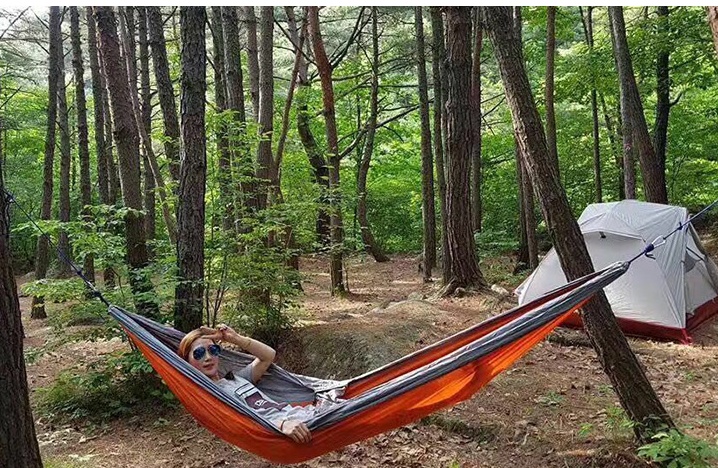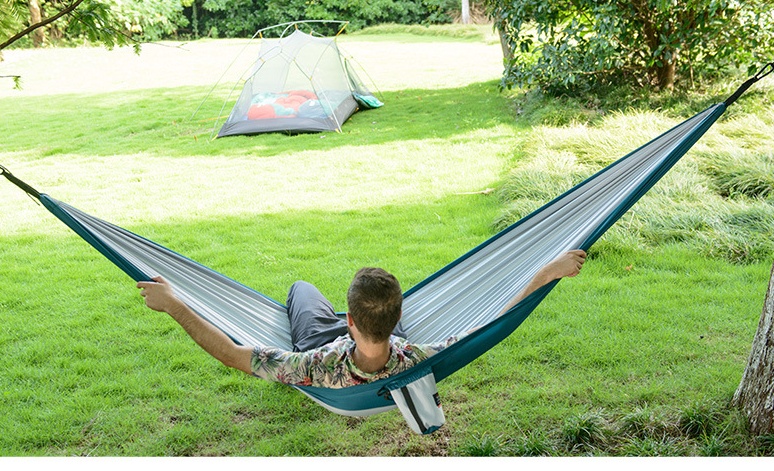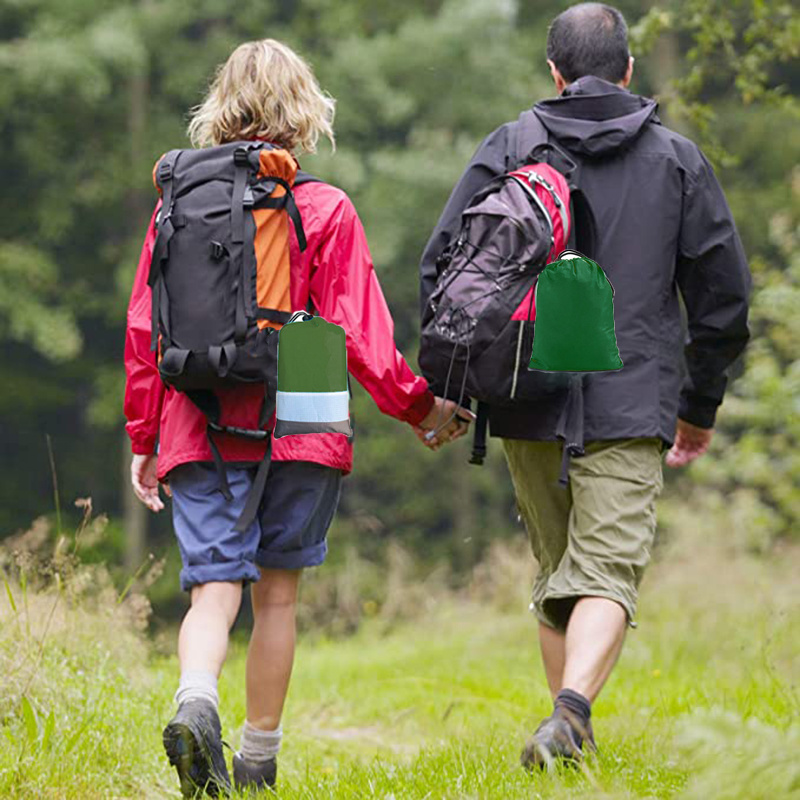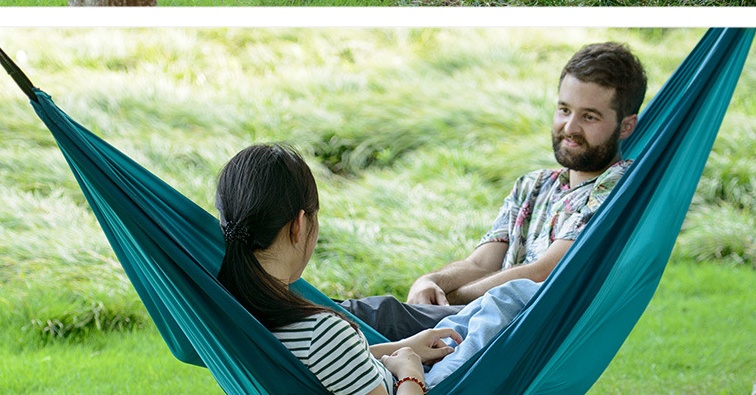Eco-Friendly Adventures: Choosing Sustainable Camping Gear
Introduction to Eco-Friendly Camping

The Importance of Sustainability in Outdoor Activities
enjoy the beauty of nature. Campers and travelers often tread on delicate ecosystems, making it imperative to adopt sustainable practices. By understanding the importance of sustainability, individuals can contribute to the conservation of wildlife, minimizing their impact on the surroundings, and promoting a harmonious relationship with nature.
One of the key aspects of sustainable outdoor activities is the concept of ‘Leave No Trace’. This principle encourages campers to leave their environment as they found it, which includes packing out all waste and respecting wildlife habitats. By educating families and young campers about these principles, we instill a sense of responsibility and respect for nature early on. Teaching kids to appreciate and protect their surroundings fosters a generation that values sustainability and environmental conservation.
Choosing sustainable camping gear is another critical factor in promoting eco-friendly adventures. From biodegradable soaps to reusable utensils, selecting equipment that has minimal environmental impact can significantly reduce our carbon footprint. Campers should consider the materials used in their gear, opting for products made from recycled or sustainably sourced materials. By making conscious choices, outdoor enthusiasts can enjoy their adventures while supporting sustainable practices.
Campsite selection also plays a significant role in environmental preservation. Choosing established campsites rather than creating new ones helps protect fragile habitats and reduces soil erosion. Additionally, being mindful of fire safety and waste disposal can further enhance the effectiveness of Leave No Trace principles. Campers should always assess their impact on the environment when selecting a location and ensure they follow best practices for wildlife conservation.
Finally, volunteering opportunities while camping provide a unique way to give back to nature. Participating in local conservation projects not only benefits the environment but also enriches the camping experience. Engaging in eco-conscious cooking and minimalist camping practices further supports sustainability, allowing adventurers to connect with nature on a deeper level. By embracing these principles, we can ensure that our love for the outdoors does not come at the cost of the environment.
Overview of Eco-Friendly Camping Practices
Eco-friendly camping practices are essential for preserving the natural environment while enjoying the great outdoors. These practices encompass a variety of strategies aimed at minimising human impact on nature, ensuring that camping remains a sustainable activity for future generations. Emphasising the importance of the Leave No Trace principles, campers can learn to respect natural habitats and wildlife while still having memorable adventures.
One key aspect of eco-friendly camping is selecting sustainable camping gear. Choosing equipment made from environmentally friendly materials not only reduces waste but also promotes ethical manufacturing practices. Campers are encouraged to invest in high-quality gear that lasts longer, which in turn lessens the frequency of replacements and the associated environmental costs.
Incorporating eco-conscious cooking methods into camping trips is another vital practice. Campers can prepare meals with minimal impact by using locally sourced ingredients and efficient cooking techniques. This not only enhances the outdoor experience but also supports local economies and reduces the carbon footprint associated with transporting food.
Choosing the right campsite plays a significant role in environmental preservation. Campers should seek established sites that have minimal ecological impact and avoid sensitive areas to protect wildlife habitats. By prioritising responsible campsite selection, campers can contribute to the conservation of natural resources and help maintain the integrity of the landscape.
Lastly, engaging in volunteer opportunities while camping offers a unique way to give back to nature. Participating in local conservation efforts or clean-up initiatives can enhance the camping experience and foster a deeper connection with the environment. By actively contributing to the preservation of natural areas, campers not only enjoy the beauty of the outdoors but also help ensure its protection for the future.
Leave No Trace Camping: How to Respect Nature While Camping

Understanding the Leave No Trace Principles
The Leave No Trace principles are essential guidelines for anyone who ventures into the great outdoors, particularly campers and hikers. These principles promote a sustainable approach to enjoying nature, ensuring that our activities do not harm the environment. By understanding and implementing these principles, individuals can help preserve natural spaces for future generations while enjoying their outdoor experiences. The core idea is simple: leave the natural world as you found it, or better, for those who come after you.
One of the foundational principles is to plan and prepare. This entails researching your destination, understanding the local regulations, and being equipped with the right gear. Proper preparation not only enhances your experience but also minimizes the impact on the environment. By choosing eco-friendly camping gear, such as biodegradable soaps and reusable utensils, campers can significantly reduce their ecological footprint, making their adventures more sustainable.
Another important principle is to travel and camp on durable surfaces. This means sticking to established trails and campsites to prevent soil erosion and protect fragile ecosystems. When setting up camp, choosing areas that have been previously disturbed helps preserve the surrounding wildlife and plant life. This practice is especially important for families who teach their children the significance of respecting nature and the importance of minimising their impact during outdoor activities.
Waste management is a critical aspect of Leave No Trace. Campers should always pack out what they pack in, including food scraps and waste. This not only keeps the environment clean but also protects wildlife that may be attracted to human waste. Eco-conscious cooking practices, such as using portable stoves instead of open fires, can further reduce environmental impact and is a practical approach for all campers, including those who prefer minimalist camping.
Lastly, understanding the impact of fire safety is crucial. Campfires can cause significant damage to the environment if not managed properly. Following guidelines for campfire use, such as using established fire rings and ensuring fires are completely extinguished, helps maintain the integrity of the natural surroundings. Embracing these Leave No Trace principles fosters a culture of stewardship among campers, ensuring that our beautiful landscapes are preserved for everyone to enjoy.
Practical Tips for Minimising Your Impact
When embarking on your eco-friendly adventure, the first step to minimising your impact is to plan your trip carefully. Research the area you intend to visit, including its environmental regulations and any specific guidelines for camping. Understanding the local flora and fauna can help you avoid sensitive areas that require extra protection. By choosing a campsite that is already established, you can further reduce the strain on natural resources and prevent the degradation of pristine environments.
Another significant aspect of minimising your impact is the gear you choose to bring along. Opt for sustainable camping equipment made from eco-friendly materials, and consider the weight of your gear to avoid unnecessary transport emissions. Items such as reusable water bottles, biodegradable soaps, and solar-powered chargers not only lighten your load but also ensure that you are leaving a minimal footprint on the environment. This conscious selection of equipment plays a critical role in maintaining the integrity of the ecosystems you visit.
Practising proper waste management is essential in your quest to respect nature during camping trips. Always carry out what you bring in, including food scraps and any disposable items. It is advisable to pack out all waste, even biodegradable materials, as they can disrupt local wildlife and ecosystems. Additionally, using composting toilets or digging a cat hole for human waste, far from water sources, can significantly reduce your impact on the environment.
Fire safety is another crucial element of Leave No Trace principles. Ensure that you follow all local regulations regarding campfires and only use established fire rings if allowed. Collecting firewood should be done responsibly, and dead wood found on the ground is preferable to cutting live trees. Always ensure that your fire is completely extinguished before leaving the site, as even smouldering embers can pose a risk to surrounding wildlife and vegetation.
Finally, engaging in volunteer opportunities during your camping trips can enhance your connection to the environment while helping to preserve it. Many national parks and conservation organisations offer programmes where campers can participate in clean-up efforts or habitat restoration projects. Not only do these activities contribute positively to the environment, but they also provide a rewarding experience that reinforces the importance of sustainable practices in the great outdoors.
Sustainable Camping Gear: Choosing Eco-Friendly Equipment

Evaluating Gear for Sustainability
Evaluating gear for sustainability is essential for campers and travellers who wish to minimise their environmental impact. The right equipment can make a significant difference in preserving natural habitats while enjoying the great outdoors. When selecting camping gear, consider materials that are renewable, recyclable, or biodegradable, as well as the environmental policies of the manufacturers. This approach not only supports eco-friendly practices but also encourages a shift towards a sustainable market.
One key factor in evaluating sustainability is the durability of the gear. High-quality, long-lasting products reduce the need for frequent replacements, which can lead to waste. Look for gear that has been tested for longevity and is backed by a warranty. This indicates that the manufacturer is confident in their product’s lifespan, contributing to less overall consumption and a reduced carbon footprint.
Another important aspect is the manufacturing process. Opt for brands that prioritise ethical sourcing and production methods. This includes using environmentally friendly dyes and reducing water usage during production. Additionally, consider companies that have transparent supply chains and engage in fair labour practices. Supporting these brands not only promotes sustainability but also helps create a more equitable industry.
It’s also beneficial to review the packaging of the gear you are considering. Eco-conscious companies often use minimal or compostable packaging, which significantly reduces waste. By selecting products that come with eco-friendly packaging, you can further enhance your commitment to sustainability while ensuring that your camping experience aligns with Leave No Trace principles.
Lastly, consider the versatility of the gear. Multi-functional items reduce the need to bring excessive equipment, leading to lighter loads and less environmental disturbance. Embracing minimalist camping principles by choosing versatile gear that serves multiple purposes can enhance your outdoor experience while remaining mindful of the environment. By thoroughly evaluating gear for sustainability, campers can ensure they are making responsible choices that benefit both themselves and the planet.
Recommended Eco-Friendly Camping Products
When embarking on an eco-friendly camping adventure, it is crucial to equip yourself with sustainable products that minimise your ecological footprint. Look for tents made from recycled materials or those that employ environmentally friendly manufacturing processes. Brands like Big Agnes and REI offer camping gear that aligns with the principles of sustainability, ensuring that you can enjoy the great outdoors while being mindful of your environmental impact. Additionally, lightweight and durable gear means easier transport and less fuel consumption during travel, which is a significant consideration for eco-conscious campers.
Another essential aspect of eco-friendly camping is the choice of cooking equipment. Opt for portable stoves that use biofuels or solar energy, reducing reliance on fossil fuels. Products like the BioLite CampStove not only allow you to cook meals efficiently but also generate electricity for charging devices. When it comes to utensils and dishware, consider using biodegradable or reusable options to minimise waste. This approach not only respects nature but also encourages a culture of sustainability within the camping community.
Water usage is another critical factor to consider during your camping trips. Invest in a water filtration system, such as the Sawyer Mini, which allows you to safely drink from natural water sources without the need for single-use plastic bottles. This not only reduces plastic waste but also promotes responsible water consumption. Furthermore, bringing along collapsible water containers ensures that you can store water efficiently without taking up excessive space in your pack.
Clothing plays a pivotal role in eco-friendly camping as well. Look for garments made from organic or recycled materials, which have a lower environmental impact compared to conventional fabrics. Brands such as Patagonia and The North Face are known for their commitment to sustainable practices. Additionally, consider layering your clothing to maintain warmth without the need for bulky items. This minimalist approach not only reduces your gear load but also aligns with the principles of Leave No Trace camping, promoting a lightweight and respectful presence in nature.
Lastly, eco-friendly camping products extend to personal care items. Choose biodegradable soaps, shampoos, and lotions to ensure that you do not harm the environment when washing up. It is also wise to pack a compact, reusable towel to reduce waste. By selecting products that are both functional and sustainable, you contribute to the preservation of nature while enjoying your outdoor experiences. Embracing these eco-friendly camping products not only enhances your adventure but also fosters a deeper connection to the environment you cherish.
Leave No Trace Principles for Families: Teaching Kids to Respect Nature

Engaging Children in Sustainable Practices
Engaging children in sustainable practices is crucial for fostering a lifelong respect for nature and the environment. By involving them in eco-friendly activities, we can teach the importance of conserving resources and protecting wildlife. Families can start by incorporating fun, interactive games that highlight the principles of Leave No Trace, making the learning process enjoyable and memorable for young campers. Outdoor adventures provide the perfect backdrop for experiential learning, where children can see firsthand the impact of their choices on the environment.
One effective method is to involve children in the planning stages of a camping trip. Allowing them to help select sustainable gear and make choices about food and activities encourages responsibility and critical thinking. Discussing the importance of eco-conscious cooking and the role of campsite selection in environmental preservation can spark their interest. This involvement not only educates them about sustainability but also fosters a sense of ownership over their outdoor experiences.
Another engaging approach is to incorporate storytelling into camping outings. Sharing tales of wildlife conservation and the importance of protecting natural habitats can ignite children’s imaginations and deepen their understanding of ecological issues. By framing these lessons within stories, children are more likely to remember and internalise the values being taught. This narrative technique can be particularly effective when coupled with hands-on activities like nature scavenger hunts or wildlife observation, where they can apply what they’ve learned.
Volunteer opportunities present an excellent way for families to engage in sustainable practices together. Organising or participating in community clean-ups and tree-planting events not only benefits the environment but also serves as a powerful lesson in social responsibility. Children who actively contribute to preserving nature develop a stronger connection to the outdoors, recognising their role in maintaining ecological balance. Such experiences can solidify their commitment to sustainable living beyond the camping trip.
Finally, it’s essential to lead by example. Children learn a great deal from observing their parents and caregivers. By demonstrating eco-friendly behaviours, such as minimising waste and respecting wildlife, adults can model the sustainable practices they wish to instil. Engaging children in discussions about the impact of their actions on the environment ensures they grasp the significance of sustainability, preparing them to be conscientious stewards of nature as they grow older.
Fun Activities to Promote Environmental Awareness
Engaging in fun activities that promote environmental awareness can significantly enhance the camping experience while fostering a deeper respect for nature. Campers can organise nature scavenger hunts, where participants search for various plants, rocks, and wildlife in a designated area. This activity not only encourages exploration but also educates individuals about local ecosystems and the importance of biodiversity. As campers identify different species, they develop a greater appreciation for their surroundings, making them more likely to adopt sustainable practices during their adventures.
Another exciting way to promote environmental awareness is through eco-friendly art projects. Campers can use natural materials found in the environment, such as leaves, twigs, and stones, to create temporary art installations. This not only sparks creativity but also imparts a lesson on using resources responsibly and leaving no trace behind. Participants can take turns explaining their creations, fostering discussions about the beauty of nature and the importance of conservation.
Organising group clean-up events at the campsite or local parks is another effective way to engage campers while promoting environmental stewardship. By providing gloves and bags, participants can work together to collect litter, learning firsthand about the impact of waste on natural habitats. This collective effort not only beautifies the area but also cultivates a sense of community among campers, reinforcing the idea that everyone has a role to play in protecting the environment.
Incorporating educational workshops into camping trips can also be a fun and informative way to promote environmental awareness. Campers can invite local environmental experts to discuss topics such as wildlife conservation, sustainable camping practices, and the significance of the Leave No Trace principles. These sessions can be interactive, allowing participants to ask questions and engage in meaningful discussions, ultimately leading to a more informed and responsible camping community.
Lastly, encouraging storytelling sessions around the campfire can serve as a powerful tool for environmental awareness. Campers can share personal experiences related to nature, conservation efforts, or memorable encounters with wildlife. This not only strengthens bonds among participants but also reinforces the message of environmental respect and responsibility. Through storytelling, campers can inspire each other to become more eco-conscious and proactive in their approach to camping and nature exploration.
Minimalist Camping: Embracing Simplicity in the Outdoors

Benefits of Minimalism in Camping
Minimalism in camping fosters a deeper connection with nature by encouraging campers to focus on the essentials. By reducing the amount of gear and possessions taken along, adventurers can experience the outdoors with less distraction and more appreciation for their surroundings. This simplicity not only enhances the camping experience but also aligns with the principles of leaving no trace, ensuring that the natural environment remains unspoiled for future visitors.
Essential Gear for Minimalist Campers
Minimalist camping is an art that requires careful selection of essential gear, allowing adventurers to embrace simplicity while respecting nature. For those seeking to minimise their environmental impact, choosing eco-friendly equipment is paramount. This approach not only lightens your load but also ensures that your camping experience aligns with sustainable practices. Essential gear for minimalist campers typically includes versatile items that can serve multiple purposes, thereby reducing the overall quantity of equipment needed.
One of the most crucial items for any minimalist camper is a lightweight tent or tarp. Opting for materials that are durable yet eco-friendly can significantly lessen your footprint. A quality tent should provide adequate shelter while being easy to set up and dismantle, allowing for quick transitions between locations. Moreover, selecting a shelter that blends seamlessly with the natural environment supports the Leave No Trace principles by minimising visual impact.
Cooking gear is another vital consideration, as preparing meals in the wild can be done sustainably with the right tools. A compact stove, along with a lightweight pot and reusable utensils, can cater to your culinary needs without overwhelming your pack. Emphasising eco-conscious cooking practices, such as using local ingredients and minimising waste, is essential. By choosing these tools, you can prepare delicious meals while adhering to wildlife conservation best practices.
Clothing and footwear should not be overlooked, as they play a significant role in the minimalist approach. Selecting multi-functional garments made from sustainable materials ensures comfort and durability during your adventures. Breathable, moisture-wicking fabrics are ideal for varying weather conditions, while sturdy yet lightweight footwear supports your journey without excess bulk. This thoughtful selection not only enhances your camping experience but also reinforces your commitment to environmental preservation.
Finally, a minimalist camper’s gear should include essential safety equipment that adheres to fire safety regulations. Carrying a compact first aid kit, a reliable multi-tool, and a portable water filtration system ensures preparedness for any situation. By prioritising safety alongside sustainability, you contribute positively to your surroundings while enjoying the great outdoors. Embracing a minimalist camping philosophy allows you to connect deeply with nature while practising responsible stewardship of the environment.
Wildlife Conservation During Camping Trips: Best Practices

Understanding Local Wildlife and Their Habitats
Understanding local wildlife and their habitats is crucial for any camper or traveller who wishes to engage responsibly with nature. Different ecosystems support a myriad of species, each adapted to thrive in their environments. From the lush forests to arid deserts, recognising these habitats enhances our appreciation for the natural world and underscores the importance of conservation efforts. As we explore these diverse areas, we become more aware of the delicate balance that sustains wildlife and the ecosystems they inhabit.
When camping, it is essential to respect the habitats of local wildlife. This means understanding not only the animals that reside in the area but also the plants and natural features that support their existence. For instance, a campsite near a water source may attract various species, from birds to mammals. Being mindful of these creatures and their needs can guide campers in choosing locations that minimise disturbance to their habitats, aligning with the principles of Leave No Trace.
In addition to choosing responsible camping spots, eco-conscious behaviour is vital during our adventures. This includes proper food storage to prevent attracting wildlife and avoiding the use of harmful substances that could pollute their habitats. Educating oneself about local species and their behaviours helps in understanding how to interact with them safely and respectfully. By adhering to best practices for wildlife conservation, we can ensure that our presence does not negatively impact these vulnerable populations.
Moreover, engaging in activities that promote wildlife conservation can enhance the camping experience. Many parks and reserves offer volunteer opportunities that allow campers to contribute positively to the environment. Whether it’s participating in habitat restoration projects or joining wildlife monitoring initiatives, these efforts foster a deeper connection with nature and provide essential support for local ecosystems. Such involvement is particularly beneficial in teaching younger generations the importance of respecting and preserving wildlife.
Lastly, understanding the impact of our camping practices on local wildlife can shape our choices in sustainable camping gear. Selecting equipment made from eco-friendly materials and ensuring our campsites are well-chosen can significantly reduce our ecological footprint. By incorporating these considerations into our camping adventures, we not only enjoy the outdoors responsibly but also advocate for the protection of the wildlife and habitats that make these experiences possible.
Responsible Wildlife Observation and Interaction
Responsible wildlife observation and interaction is a fundamental aspect of eco-friendly camping that enhances the experience while safeguarding nature. Campers must understand that wildlife is not merely a backdrop for their adventures, but rather living creatures that play crucial roles in their ecosystems. Observing wildlife respectfully involves maintaining a safe distance, avoiding feeding animals, and refraining from disturbing their habitats. This approach not only protects the animals but also promotes a more authentic experience for the observer, allowing for genuine encounters with nature.
Eco-Conscious Cooking: Preparing Meals Without Impact

Sustainable Cooking Methods for Campers
Sustainable cooking methods are essential for campers who wish to enjoy the great outdoors while minimising their environmental impact. One effective approach is to use portable stoves that run on renewable fuels, such as biofuels or even solar energy. These options not only reduce reliance on fossil fuels but also provide a cleaner cooking experience, making it easier to adhere to Leave No Trace principles. By choosing these methods, campers can enjoy their meals without leaving a negative mark on the environment.
Another sustainable cooking practice involves meal planning and preparation before heading into the wild. By preparing meals in advance, campers can reduce food waste and the need for excessive cooking in the campsite. Pre-packaged meals in reusable containers can be easily transported and require minimal preparation, allowing for efficient cooking while keeping the campsite clean. This practice not only conserves resources but also contributes to a more enjoyable camping experience, as it simplifies meal times and reduces mess.
Utilising local and seasonal ingredients is an excellent way to embrace sustainable cooking while camping. Sourcing food from local farmers or markets not only supports the community but also decreases the carbon footprint associated with transporting food over long distances. When campers prioritise seasonal produce, they contribute to a more sustainable food cycle. Additionally, foraging for wild edibles can add a unique experience to the camping trip, encouraging campers to connect more deeply with their environment.
Fire safety is another critical aspect of sustainable cooking techniques. Campers should always follow fire safety protocols to prevent wildfires and protect wildlife habitats. Using established fire rings for cooking and ensuring that fires are kept small and manageable can significantly reduce the impact on the environment. After cooking, it is essential to properly extinguish fires and leave no trace behind, which aligns with the responsible camping ethos and ensures the safety of the surrounding ecosystem.
Lastly, embracing minimalist cooking gear can enhance sustainability during camping trips. Opting for lightweight, multi-functional cooking equipment reduces the overall weight and space needed in a backpack, making it easier to travel. Items like collapsible pots, utensils that double as tools, and compact cooking stoves allow campers to cook efficiently while maintaining a low environmental footprint. This minimalist approach not only simplifies the camping experience but also aligns with eco-conscious values, promoting a deeper respect for nature.
Meal Planning with Minimal Waste
Meal planning is a crucial aspect of camping that can significantly reduce waste and ensure a more enjoyable outdoor experience. By carefully selecting ingredients and preparing meals in advance, campers can minimise the amount of food that goes uneaten and limit the packaging waste generated during their trips. Planning meals around local and seasonal produce not only supports sustainable practices but also enhances the overall taste and freshness of the food prepared in the great outdoors.
A good strategy for meal planning involves creating a flexible menu that accommodates varying appetites and cooking conditions. Campers should consider the duration of their trip, the number of people in their group, and the types of meals that can be easily prepared over a campfire or portable stove. Opting for meals that can be made in one pot or require minimal utensils not only simplifies the cooking process but also reduces the amount of cleaning up necessary, further aligning with the Leave No Trace principles.
When it comes to shopping for camping meals, purchasing in bulk can be an excellent way to cut down on packaging waste. Bring reusable containers for bulk items and avoid single-use packaging wherever possible. Additionally, consider using dehydrated or freeze-dried foods, which are lightweight and have a longer shelf life, making them ideal for camping trips. These options not only save space in your pack but also encourage less food waste, as they can be stored for future adventures.
Proper food storage is another vital consideration in meal planning to minimise waste and ensure safety. Use airtight containers to keep food fresh and prevent spoilage, especially in warmer climates. Leftover food should be properly stored and consumed within a reasonable timeframe to avoid waste. Moreover, campers should be mindful of disposing of any food scraps responsibly, adhering to local regulations, and ensuring that wildlife is not attracted to their campsite.
Ultimately, successful meal planning with minimal waste requires thoughtful consideration and preparation. By embracing eco-conscious cooking practices, choosing sustainable ingredients, and being mindful of food storage, campers can enjoy their outdoor adventures while respecting nature. This approach not only benefits the environment but also fosters a greater appreciation for the resources we utilise, ensuring that everyone can enjoy the beauty of the outdoors for years to come.
The Role of Campsite Selection in Environmental Preservation

Criteria for Choosing an Eco-Friendly Campsite
Choosing an eco-friendly campsite is crucial for minimising our environmental impact while enjoying the great outdoors. The first criterion to consider is location; opt for sites that are already established and avoid pristine, untouched areas. This helps to prevent soil erosion and protects local wildlife habitats. Additionally, sites that are further away from water sources are preferable, as they reduce the risk of pollution and disturbance to aquatic ecosystems.
Impact of Campsite Location on Local Ecosystems
Campsite location plays a crucial role in the health of local ecosystems. Selecting a site that is too close to water bodies can lead to sediment runoff and pollution, affecting aquatic life and water quality. Therefore, understanding the ecological impact of our choices is essential for minimising our footprint in nature. Campers must be educated on the importance of choosing an appropriate distance from sensitive areas to protect the natural environment and its inhabitants.
The flora and fauna of an area are significantly influenced by the choice of campsite. Disturbing wildlife habitats by setting up camp in inappropriate locations can lead to displacement of species and disruption of breeding patterns. It is vital for campers to be aware of local wildlife and the seasonal behaviours that may affect their camping experience. By selecting sites that are less intrusive, campers can help maintain biodiversity and support the health of local ecosystems.
Moreover, the impact of campsite location extends to soil health. Frequent trampling around popular camping areas can lead to soil compaction and erosion. This not only affects plant growth but can also result in greater runoff during rainfall, further degrading the ecosystem. Choosing less travelled paths and sites further from main trails can significantly reduce these negative impacts, promoting healthier soil and vegetation.
Fire safety is another essential consideration linked to campsite selection. Areas that are prone to wildfires or where vegetation is particularly dry should be avoided to prevent catastrophic events. Responsible campers should always assess the fire risks of an area before making a decision. Selecting a suitable location for campfires not only protects the immediate environment but also ensures safety for all who enjoy the outdoors.
In conclusion, the impact of campsite location on local ecosystems cannot be overstated. Campers have a responsibility to choose their sites wisely, considering the effects on water quality, wildlife, soil health, and fire safety. By adhering to these principles, we can all contribute to preserving the beauty and integrity of our natural landscapes for future generations to enjoy.
Leave No Trace for Solo Campers: Personal Responsibility in Nature

Self-Sufficiency and Environmental Awareness
Self-sufficiency and environmental awareness are crucial aspects of modern camping practices. Campers today are increasingly recognising the importance of leaving minimal impact on natural habitats. By adopting a mindset of self-sufficiency, individuals can not only enjoy their outdoor experiences but also ensure that they contribute positively to the environment. This involves making informed choices about camping gear and understanding the principles of sustainability that guide responsible outdoor activities.
One of the key elements of self-sufficiency is the selection of eco-friendly camping gear. Choosing sustainable equipment not only reduces one’s carbon footprint but also helps in the preservation of nature. Campers should consider products made from recycled materials, as well as those that are durable and long-lasting. Investing in high-quality gear means fewer replacements and less waste, which aligns perfectly with the principles of responsible camping.
Another important aspect is the practice of Leave No Trace principles. These guidelines encourage campers to respect nature by minimising their impact on the environment. Teaching children about these practices is vital, as instilling a sense of responsibility towards nature from a young age fosters lifelong environmental awareness. Families who camp together can engage in activities that emphasise the importance of protecting wildlife and their habitats, ensuring that they leave the places they visit as they found them.
In addition to responsible gear selection and adherence to Leave No Trace principles, campsite selection plays a critical role in environmental preservation. Campers should choose locations that are already established to minimise disturbance to natural areas. This not only protects ecosystems but also enhances the overall camping experience by allowing campers to immerse themselves in a beautiful, untouched environment. Understanding the delicate balance of nature encourages a deeper appreciation for the outdoors.
Ultimately, the combination of self-sufficiency and environmental awareness creates a fulfilling camping experience. By consciously choosing sustainable gear, practising Leave No Trace principles, and selecting responsible camping sites, individuals can enjoy the great outdoors while contributing to the well-being of the environment. This holistic approach not only benefits the earth but also enriches the personal journey of each camper, fostering a connection with nature that is both profound and lasting.
Solo Camping Best Practices for Minimal Impact
Solo camping can be a profoundly rewarding experience, but it also comes with the responsibility of minimising one’s impact on the environment. To practice responsible camping, it is essential to adhere to the Leave No Trace principles. This means planning ahead to avoid damaging delicate ecosystems, ensuring that everything you bring can either be reused or easily disposed of without harming nature. By respecting the land and its inhabitants, solo campers can enjoy their adventures while preserving the beauty of the outdoors for future generations.
Choosing the right location is critical for minimising impact during solo camping trips. Campers should seek out established campsites that are already impacted by previous visitors, which helps prevent further erosion and damage to natural habitats. Additionally, when selecting a site, it is important to camp at least 200 feet away from water sources to protect aquatic ecosystems and to avoid trampling on fragile vegetation. By making thoughtful choices about where to pitch a tent, solo campers can contribute to the preservation of the environment.
In terms of gear, opting for sustainable camping equipment can significantly lessen one’s ecological footprint. Choosing lightweight, durable items made from recycled or eco-friendly materials not only makes for easier trekking but also ensures that the gear itself is less harmful to the planet. Solo campers should consider investing in multi-functional tools that reduce the need for multiple items, thus promoting a minimalist approach. This not only simplifies the camping experience but also aligns with the principles of responsible outdoor ethics.
Cooking while camping can also pose challenges in terms of environmental impact. Solo campers should aim to use a portable stove rather than an open fire, as this reduces the risk of wildfires and conserves natural resources. Preparing meals that require minimal packaging and using locally sourced ingredients can further enhance sustainability. It is crucial to pack out all food waste and leftover materials to ensure that the campsite remains clean and natural, allowing wildlife to thrive uninterrupted.
Finally, engaging in volunteer opportunities during solo camping trips can amplify the positive impact on the environment. Many parks and conservation areas offer programmes where campers can help with trail maintenance, litter clean-up, or habitat restoration. Participating in such initiatives fosters a deeper connection with nature and reinforces the importance of preserving it. By combining responsible camping practices with a commitment to giving back, solo campers can enjoy their adventures while ensuring that the beauty of nature is preserved for years to come.
Urban Camping: Practising Leave No Trace in City Parks

Unique Challenges of Urban Camping
Urban camping provides a unique blend of adventure and challenge as it takes place in a setting that is often vastly different from traditional wilderness camping. Campers must navigate the complexities of urban environments, which can include noise, pollution, and limited access to natural resources. This juxtaposition of nature and city life presents an opportunity for individuals to engage with the outdoors in a new way, yet it also requires a heightened awareness of the impact one can have on the environment. Understanding these challenges is essential for those looking to practice sustainable camping in urban settings.
One of the foremost challenges of urban camping is finding appropriate locations that allow for overnight stays while adhering to local regulations. Many city parks have restrictions on camping, making it crucial for campers to research and identify spots where they can legally pitch a tent. This research not only aids in compliance with local laws but also plays a significant role in preserving the natural environment by ensuring that campers do not inadvertently damage sensitive areas or disrupt local wildlife.
Another critical aspect of urban camping is the necessity for minimal impact practices. The Leave No Trace principles are paramount in urban settings, where the proximity to residential areas means that the consequences of negligence can be more pronounced. Campers must be diligent in their efforts to leave the site as they found it, taking care to pack out all trash and avoid creating disturbances. By being mindful of their surroundings and adopting eco-conscious behaviours, urban campers can help maintain the integrity of city parks and green spaces.
Moreover, urban camping often involves a different set of challenges related to safety and comfort. Campers may need to consider factors such as security, access to amenities, and proximity to emergency services. It is vital for campers to prepare adequately by selecting gear that is suitable for urban environments, including compact and multifunctional equipment that supports a lighter pack. This approach not only enhances the camping experience but also aligns with the principles of minimalist camping and sustainability.
Finally, urban camping presents a unique opportunity for community engagement and environmental stewardship. Many urban parks offer volunteer programmes that allow campers to give back to the environment while enjoying their time outdoors. By participating in local conservation efforts, urban campers can foster a deeper connection to their surroundings, advocate for sustainable practices, and inspire others to respect and protect urban green spaces. This dual approach of enjoyment and activism is essential for the future of urban camping and the preservation of our natural resources.
Strategies for Sustainable Urban Camping
Sustainable urban camping is an innovative way to experience the great outdoors while minimising your environmental footprint. When camping in urban areas, it is crucial to respect local parks and natural spaces by adhering to the Leave No Trace principles. These guidelines help campers enjoy nature without causing harm, ensuring that green spaces remain vibrant for future generations. By planning ahead and being conscious of your impact, you can enjoy the beauty of urban camping responsibly.
Choosing the right location is vital for sustainable urban camping. Select parks and green spaces that support conservation efforts and have regulations in place to protect wildlife and habitats. Researching local flora and fauna helps campers understand the ecosystem they are entering, encouraging respect and stewardship. Additionally, opting for established campsites reduces the risk of damaging sensitive areas and promotes the preservation of natural resources.
Sustainable camping gear plays a significant role in reducing environmental impact. Invest in eco-friendly equipment such as biodegradable tents, solar-powered lights, and reusable cooking utensils. These choices not only lessen your ecological footprint but also promote a culture of sustainability among fellow campers. Sharing knowledge about sustainable gear can inspire others in urban camping communities to make similar choices, fostering a collective commitment to protecting nature.
Practising eco-conscious cooking is another essential strategy for sustainable urban camping. Prepare meals using locally sourced, organic ingredients to minimise transportation emissions and support local farmers. Additionally, utilising portable stoves or solar cookers reduces reliance on disposable items and helps prevent fire hazards. By being mindful of food waste and employing proper disposal methods, campers can further lessen their environmental impact while enjoying delicious meals under the stars.
Lastly, engaging in volunteer opportunities during urban camping trips can enhance your experience while giving back to nature. Many parks offer programmes for campers to participate in conservation efforts, such as trail maintenance or habitat restoration. This involvement not only fosters a deeper connection with the environment but also educates campers about the importance of preserving natural spaces. By adopting these strategies, urban campers can create memorable experiences that honour the earth, ensuring that future generations can enjoy the beauty of nature in cities.
Volunteer Opportunities: Giving Back to Nature While Camping

Finding Volunteer Programs and Initiatives
Finding volunteer programs and initiatives can significantly enhance your camping experience, allowing you to give back to the environment while enjoying the great outdoors. Many organisations offer opportunities for campers and travellers to engage in conservation efforts, from maintaining trails to participating in wildlife surveys. These activities not only contribute to ecological preservation but also provide a sense of community among like-minded individuals who share a passion for nature and sustainability.
To discover suitable volunteer programmes, begin by researching local environmental organisations or national parks that align with your camping destinations. Websites like VolunteerMatch and Idealist can be valuable resources for finding specific initiatives related to camping and conservation. Additionally, many parks and recreational areas have dedicated volunteer coordinators who can guide you toward upcoming projects and ongoing initiatives.
Engaging in volunteer work while camping also offers a unique educational experience. Participants typically gain insights into local ecosystems, biodiversity, and the importance of conservation practices, including the Leave No Trace principles. This knowledge not only enhances your camping skills but also equips you to educate others, particularly children, about the significance of respecting nature and preserving it for future generations.
Moreover, volunteering can be a rewarding way to meet fellow campers who are equally passionate about sustainability. Building connections with other environmentally-conscious individuals can lead to lifelong friendships and shared experiences in nature. These social interactions enrich your outdoor adventures and promote a collective commitment to sustainable practices within the camping community.
Ultimately, finding volunteer programmes and initiatives while camping is an excellent way to merge your love for the outdoors with a desire to make a positive impact. By participating in these activities, you contribute to the conservation of natural spaces and help foster a culture of respect for the environment. This not only enhances your own camping experience but also ensures that these beautiful outdoor areas remain preserved for future generations to enjoy.
Benefits of Volunteering for the Environment
Volunteering for the environment offers numerous advantages, particularly for those who enjoy camping and spending time in nature. Engaging in environmental volunteer work not only helps preserve natural habitats but also fosters a sense of community among campers and outdoor enthusiasts. Participants often find that these experiences enrich their understanding of local ecosystems, leading to a deeper appreciation for the places they explore. Moreover, volunteering can provide valuable learning opportunities about sustainable practices, which can be applied during personal camping trips.
One of the most significant benefits of volunteering for environmental causes is the direct impact it has on conservation efforts. Many volunteer projects focus on restoring damaged ecosystems, such as reforestation initiatives or wildlife habitat restoration. By participating in these activities, volunteers contribute to the recovery of local flora and fauna, ensuring that future generations can enjoy the beauty of nature. This hands-on approach not only aids the environment but also instils a sense of fulfilment in those who take part.
Volunteering also promotes a heightened awareness of the Leave No Trace principles, which are essential for responsible camping. Through participation in clean-up events or educational workshops, volunteers learn effective strategies for minimizing their environmental footprint. This knowledge can be shared with friends and family, encouraging a broader culture of environmental respect and responsibility within the camping community. By spreading awareness, volunteers play a crucial role in fostering sustainable practices among fellow campers.
Additionally, volunteering can serve as a fantastic networking opportunity, connecting like-minded individuals who share a passion for the outdoors. Forming relationships with fellow volunteers can lead to lasting friendships and collaborations on future projects or camping trips. These connections can enhance the overall experience of camping, transforming it into a more communal and enriching activity that goes beyond mere recreation.
Finally, volunteering for the environment aligns perfectly with the ethos of minimalist camping, where less is more. By dedicating time to conservation efforts, campers can embrace simplicity and focus on the essentials of outdoor living. This commitment to giving back not only benefits the environment but also encourages a mindful approach to camping, where every action is taken with consideration for the natural world. Ultimately, the benefits of volunteering extend far beyond the individual, positively influencing the broader community and the environment itself.
The Impact of Fire Safety on Leave No Trace Camping Practices

Safe Campfire Practices
When enjoying the great outdoors, practising safe campfire techniques is essential for both personal safety and environmental preservation. Campfires can be a source of warmth and camaraderie, but they also pose risks if not managed properly. Always choose a designated fire pit, preferably one that is pre-existing to minimise your impact on the surroundings. Before lighting a fire, ensure that the area is free of flammable debris and that the fire pit is surrounded by rocks to contain the flames and prevent them from spreading.
It is crucial to use only local firewood to avoid introducing non-native pests and diseases to the area. Purchasing firewood from local suppliers not only supports the local economy but also reduces the risk of spreading invasive species. If you must gather wood, only collect fallen branches and dead wood that is already on the ground, and refrain from cutting live trees. This practice aligns with the Leave No Trace principles, ensuring that the natural habitat remains intact for future visitors.
When it comes to lighting your campfire, opt for natural fire starters such as dry leaves or small twigs, and avoid using lighter fluid or other chemical accelerants that can leave harmful residues. Keep your fire small and manageable, which will help to control the heat and reduce the amount of smoke produced. A smaller fire is also easier to extinguish and safer for the environment. Always have water or dirt nearby to extinguish the fire quickly and efficiently if needed.
Extinguishing your campfire properly is one of the most important aspects of campfire safety. Make sure to soak the ashes and embers thoroughly with water, stirring them until they are completely cool to the touch. Do not bury hot ashes, as they can smoulder and reignite. Leaving no trace of your fire is essential for maintaining the beauty of natural spaces and ensuring that wildlife is not harmed by lingering heat or debris.
By adhering to safe campfire practices, you are not only protecting your own well-being but also contributing to the preservation of the environment. Campfires can be a joy when enjoyed responsibly, allowing you to connect with nature without leaving a negative impact. Remember the core principles of Leave No Trace, and you will ensure a safer and more sustainable camping experience for yourself and future generations.
Alternatives to Traditional Campfires for Eco-Conscious Camping
Camping traditionally involves the gathering around a campfire, but with increasing awareness about environmental impact, many campers are seeking alternatives that minimise their carbon footprint. One such option is the use of portable camp stoves. These devices allow for efficient cooking without the need for wood, reducing the chances of wildfires and preserving the surrounding ecosystem. Modern camp stoves come in various sizes and fuel types, including propane and butane, making them versatile for different camping situations.
Another eco-friendly alternative is the use of solar cookers. Harnessing the sun’s energy, solar cookers provide a sustainable way to prepare meals without producing smoke or using traditional fuel. They are particularly effective in sunny locations and can be an educational experience for families, teaching children about renewable energy and its benefits. This method also eliminates the need to transport firewood, further reducing environmental impact.
For those who enjoy the ambience of a fire, consider using a fire pit made from recycled materials. These pits contain the fire and prevent it from spreading, making them safer for the environment. By using a designated fire pit, campers can also limit their impact on the surrounding area, as they minimise soil erosion and vegetation damage. This practice aligns with the Leave No Trace principles, promoting responsible camping while still enjoying the warmth and atmosphere of a fire.
Additionally, for gatherings that require a fire-like experience, flameless candles or LED lanterns can create a similar ambiance without the environmental concerns associated with traditional fires. These alternatives are safe, reusable, and can be powered by solar energy or batteries, making them user-friendly for campers of all ages. They provide light and warmth, while allowing campers to focus on their surroundings rather than the potential hazards of an open flame.
Finally, embracing minimalist camping can also lead to less reliance on fire-based cooking methods. By packing simple, ready-to-eat meals and utilising cold cooking techniques, campers can fully appreciate the beauty of nature without the need for a fire. This approach not only reduces waste but also fosters a greater connection to the environment, encouraging campers to respect and protect the natural world around them. In choosing these alternatives, campers contribute to the preservation of nature while still enjoying the outdoor experience.

